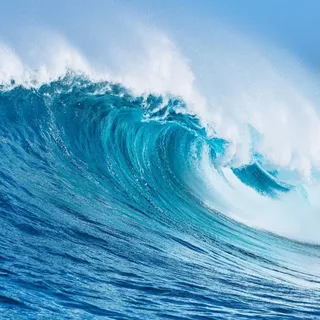 Seeing as every 2nd breath we take comes from the ocean, it’s important that we protect it against the effects of climate change and human interference. As marine scientists and creators of reef-safe sunscreen, we often remind our community that sunscreen pollution is a very small part of the problem when it comes to the state of our oceans.
Seeing as every 2nd breath we take comes from the ocean, it’s important that we protect it against the effects of climate change and human interference. As marine scientists and creators of reef-safe sunscreen, we often remind our community that sunscreen pollution is a very small part of the problem when it comes to the state of our oceans.
Covering 70% of the planet’s surface and hosting 80% of the world’s biodiversity, our oceans are our Earth’s true lungs – before the Amazon rainforest. However, rising sea temperatures and atmospheric CO2 levels are having devastating effects, such as ocean acidification and coral bleaching.
The rise of CO2 levels in our atmosphere is causing the ocean to absorb more & more carbon dioxide, making ocean water more acidic. This change in our ocean’s chemistry is compromising the health of plankton & shellfish, whose skeleton is made of calcium carbonate, and thus sensitive to a change in water pH. Plankton may be small in size, but they play a huge role in our ocean’s health & balance, being primary producers of oxygen and a critical source of food for the entire ocean food chain.
Our modern way of life is exacerbating the issue as well. Damaging practices such as overfishing, oil drilling, shipping & plastic pollution are direct threats to our oceans and marine life, and the way we eat, shop and travel is having a negative impact too.
June 8th is the United Nations World Oceans Day – an occasion dedicated to taking action and raising awareness about the importance of protecting our oceans. The 2022 theme is ‘Revitalisation: Collective Action for the Ocean’.
Although climate action/activism is a very complex subject (and often politically manipulated), it doesn’t have to be difficult. If everybody makes a small but significant change in their day-to-day lives, it can make a big difference globally.
Here are People4Ocean’s top 6 simple steps you can take to minimise your carbon footprint today and take part in the global effort to slow down climate change, allowing humanity and the natural world to adapt:
1. Eat more plant-based meals – cut your red meat consumption by half (to 3 meals or less per week) to significantly slow down climate change & give our reefs a fighting chance.
2. Holiday closer to home – choose your plane trips wisely and look for ways to compensate for your carbon emissions like planting a tree.
3. Purchase a bicycle for each person in your family – fuel prices are on the rise anyway, so on rain-free days, ride to work or the closest train station.
4. Invest in your home insulation – turn off lights, appliances & power sockets while not in use, and do your laundry & dish washes off-peak hours.
5. Consume less seafood – approx. 700,000 whales, dolphins, turtles, seals & sharks are killed each year as a result of longline fishing, bottom trawling & bycatch, so consult your local seafood provider & download apps such as GoodFish to recommend species that show healthy stocks.
6. Avoid single plastics – prioritise reusable bottles, bags, products & packaging, go for the non-wrapped option at the grocery store and dispose of your rubbish correctly.
Source: People4Ocean
Help the environment from home this World Oceans Day




















